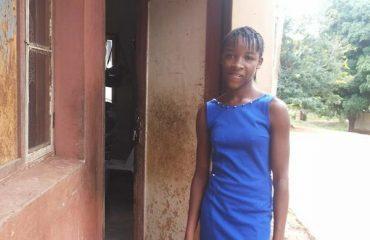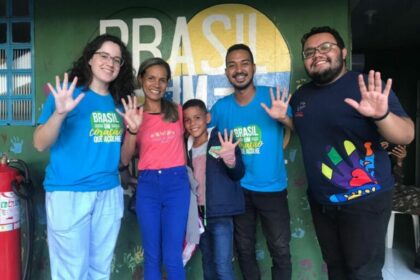
Refugees and migrants opted for the process and won the chance of a fresh start in other states of Brazil
By Taemã Oliveira, FWB Press Office/Boa Vista, Roraima, Brazil
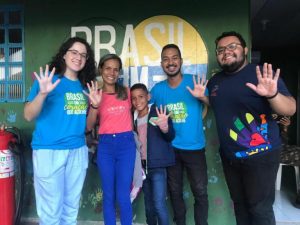
The project “Brazil, a heart that welcomes” from the humanitarian organization Fraternity without Borders (FWB) works in the state of Roraima, welcoming refugee families and migrants from Venezuela who arrive in Brazil in search of better living conditions. The project’s main goal is to relocate Venezuelan refugees and migrants, that is, to offer all the logistics and socioeconomic conditions so these people can move to other Brazilian states and thus start a new life with dignity.
In 2021, 68 families that lived in Roraima, but not necessarily in the reception centers, were relocated to other states, a total of 228 people. There were 34 families relocated by social reunion, 24 by family reunification, 8 by voluntary fostering, and 2 by the institutional modality. The main destinations were the South and Southeast regions. 15 families went to the state of Santa Catarina, 12 to São Paulo, 10 to Rio Grande do Sul, 6 to Paraná and 5 to Minas Gerais.
“I have a lot to thank the Fraternity for, I take it in my heart. But we are very, very happy. Let’s start over,” celebrates Catalina Ortega, 52 years old, welcomed by the project since 2019 in the São Vicente 2 Reception Center, in Boa Vista – RR.
The project “Brazil, a heart that welcomes” is getting close to 1,500 interiorizations already carried out since 2017.
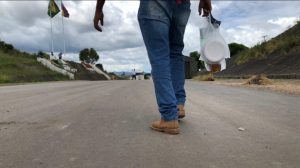
Get to know relocation process
The relocation was a strategy created by “Welcome Operation” (Operação Acolhida), the humanitarian task force executed and coordinated by the Federal Government, through the Brazilian Army and the Ministry of Citizenship, in partnership with different entities, among them Fraternity without Borders, to manage the migration crisis generated in Brazil by the intense migratory flow from Venezuela.
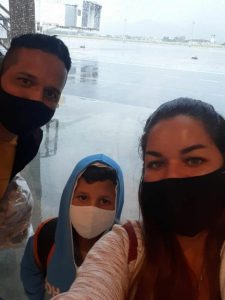 There are four modalities of relocation: Institutional, when the sheltered people are moved from shelter to shelter; by Social Reunion, when they go at the invitation of a friend or acquaintance; by Family Reunification, when they go for family reunion, and by Job Vacancy – when they are relocated with a job opportunity. This last one is not practiced by the FWB; instead, the relocation is developed by Voluntary Fostering
There are four modalities of relocation: Institutional, when the sheltered people are moved from shelter to shelter; by Social Reunion, when they go at the invitation of a friend or acquaintance; by Family Reunification, when they go for family reunion, and by Job Vacancy – when they are relocated with a job opportunity. This last one is not practiced by the FWB; instead, the relocation is developed by Voluntary Fostering
Fraternal Host: is a person who is interested in hosting a Venezuelan family in the city where they live. To offer this welcome, the person interested in being a fraternal host needs to enter the FWB website (www.fraternidadesemfronteiras.org.br), register for this modality, and know that he/she will be responsible for the Venezuelan family’s housing, sustenance, education, and job search for at least three months. The fraternal host volunteer will help the FWB to give dignity to Venezuelan refugees and migrants in this fresh start until they achieve full independence.
All relocations are voluntary, that is, the refugees and migrants need to express their will. After the documentation is regulated, the Brazilian army buses take the families to the airport in Boa Vista or Manaus, from where the flights leave in four modalities: chartered flight by “Welcome Operation” (Operação Acolhida), ticket purchase by “Welcome Operation” (Operação Acolhida), FAB flight, and ticket purchase by the IOM (International Organization for Migration).
Juliana Lopes, the relocation leader, the work front that is the main focus of the Project, holds meetings with each new arrival to explain what the process is about and accompanies those who have already been internalized.
“Today the main challenge in our sector is the search for work, and along with it come the other problems. I can say that for single mothers, especially for them, the struggle is even greater. Because they are alone to work and take care of their children. But with the help of the volunteer hosts, we are managing to overcome and give opportunity to this public as well,” explained Juliana.
For women and the elderly, often the only chance to start over is the appearance of someone who wants to welcome and help them closely in this process.
Understand the migratory flow from Venezuela to Brazil
According to the UN High Commissioner for Refugees in Brazil, the UNHCR, between 2010 and 2020 there was a drastic change in the migratory flow between Brazil and Venezuela.
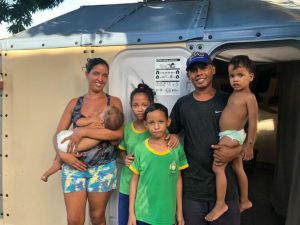 The relocation sector of the project “Brazil, a heart that welcomes” estimates that in 2015, an average of 100 Venezuelans per day entered Brazil via the border with Roraima. From 2015 to 2017, this number had a 922% increase, according to the United Nations. The estimate exceeded more than a thousand people entering the country daily through the far north of Brazil.
The relocation sector of the project “Brazil, a heart that welcomes” estimates that in 2015, an average of 100 Venezuelans per day entered Brazil via the border with Roraima. From 2015 to 2017, this number had a 922% increase, according to the United Nations. The estimate exceeded more than a thousand people entering the country daily through the far north of Brazil.
Also, according to the UN, in 2020, 262,000 Venezuelans were living in Brazil. Fraternity without Borders was one of the first to arrive in Roraima with a work of welcoming Venezuelans, in October 2017. Today, in addition to government institutions, there are more than 120 agencies active in this humanitarian work offering the work of documentation, reception, integration, and internalization to Venezuelans arriving in Brazil.
“My family is there, when I get there, I will already have a job and I will be able to stabilize myself and my family, fulfill what I had in mind when I came to Brazil: to have a better life”, hopes confidently Junior Sotillo next to his wife, Dayerlin Ramirez, and their two children on their way to Caxias do Sul – RS




